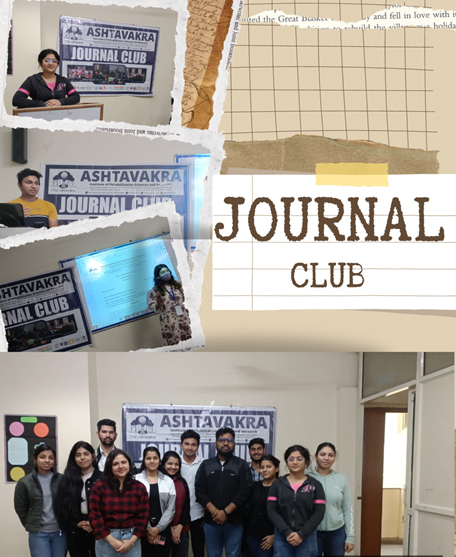BACKGROUND
A journal club is a regular gathering of individuals, typically within an academic or professional setting, to discuss and critically evaluate research articles from scientific journals. Here’s a comprehensive overview:
PURPOSE
- Knowledge Sharing: To keep members updated on the latest research in their field.
- Critical Appraisal: To develop critical thinking skills by evaluating the strengths and weaknesses of research studies.
- Skill Development: To improve skills in reading scientific literature, understanding research methodologies, and interpreting data
- Networking: To foster collaboration and discussion among researchers and professionals.
STRUCTURE
- Frequency: Usually meets regularly, such as weekly, bi-weekly, or monthly
- Participants: Typically includes researchers, graduate students, clinicians, or professionals interested in the topic area.
- Format: Sessions may be moderated by a rotating leader or a designated presenter who introduces the article.
- Article Selection: Articles are selected based on relevance to current research trends, potential impact on practice, or interest among club members.

PROCESS
- Presentation: The presenter gives an overview of the article, including background, objectives, methods, results, and conclusions.
- Discussion: Members discuss various aspects of the article, such as the study design, statistical analysis, validity of results, and implications for practice or further research
- Critique: Participants critically evaluate the strengths and weaknesses of the study, including its methodology, potential biases, and ethical considerations
- Conclusions: The session concludes with a summary of key insights, unanswered questions, and potential future research directions.
BENEFITS
- Professional Development: Enhances understanding of current research and improves critical appraisal skills.
- Collaboration: Facilitates networking and collaboration among researchers with similar interests.
- Learning Environment: Provides a supportive environment for learning and exchanging ideas
- Keeps Current: Ensures members stay up-to-date with advancements in their field.
TIPS OF SUCCESS:
- Engagement: Encourage active participation from all members.
- Diverse Selection: Rotate article selection to cover various aspects of the field.
- Facilitation: Ensure a balanced discussion that respects differing opinions.
- Feedback: Solicit feedback to continually improve the club’s effectiveness and relevance.
A journal club is a valuable forum for fostering academic and professional growth, promoting critical thinking, and advancing knowledge within a specialized field or discipline.




